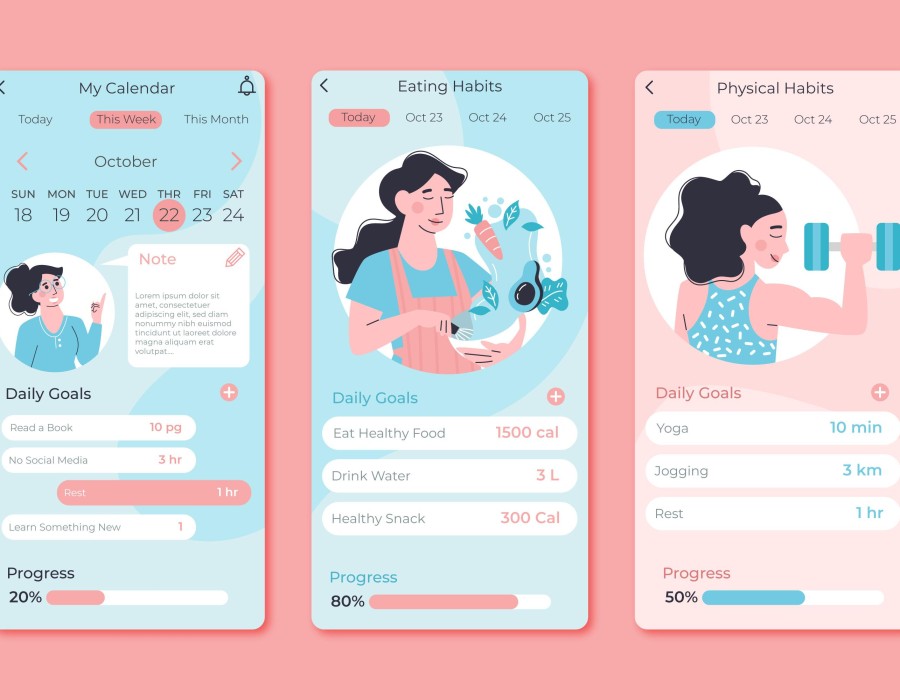In today's fast-paced world, it's easy to become overwhelmed by the demands of daily life. Juggling work, family, and personal responsibilities can leave little time for self-care. However, prioritizing self-care is essential for maintaining overall well-being and reducing stress. Fortunately, with the rise of technology, self-care apps have become invaluable tools for promoting wellness and mindfulness. Let's explore how the best self-care apps can improve your quality of life and discover some tips and recommendations for integrating them into your routine.
Understanding the Importance of Self-Care
Self-care encompasses a broad range of activities that prioritize your physical, mental, and emotional health. It involves taking time for yourself to rest, recharge, and engage in activities that bring you joy and fulfillment. Whether it's practicing mindfulness, engaging in physical exercise, or spending time with loved ones, self-care is essential for maintaining balance and resilience in the face of life's challenges.
How Self-Care Apps Can Help
Self-care apps leverage technology to make self-care practices more accessible and convenient for users. These apps offer a variety of features and tools designed to support different aspects of well-being:
Mindfulness and Meditation
Many self-care apps provide guided meditation sessions, breathing exercises, and mindfulness practices to help users relax and reduce stress. These practices can promote a sense of calm and clarity, improve focus, and enhance overall well-being.
Physical Health and Fitness
Self-care apps offer a wealth of resources for supporting physical health and fitness goals. From workout trackers and fitness plans to nutrition guides and meal planners, these apps make it easier for users to adopt healthy habits and stay active.
Mental Health and Emotional Well-Being
Maintaining good mental health is crucial for overall well-being, and self-care apps provide valuable tools and resources for managing stress, anxiety, and other mental health concerns. These apps may include mood-tracking features, journaling prompts, and access to mental health professionals for additional support.
Sleep and Relaxation
Quality sleep is essential for physical and mental health, and self-care apps can help users improve their sleep habits. These best self-care apps may offer features such as sleep trackers, bedtime routines, and relaxing sounds to promote better sleep hygiene and enhance relaxation.
Tips for Using Self-Care Apps Effectively
To make the most of self-care apps, consider the following tips:
- Set Realistic Goals: Start by setting achievable goals for your self-care routine. Whether it's meditating for five minutes a day or going for a walk three times a week, setting realistic goals will help you stay motivated and focused.
- Create a Routine: Incorporate self-care activities into your daily or weekly schedule to make them a regular part of your routine. Consistency is key to seeing results, so find a time that works best for you and stick to it.
- Listen to Your Body: Pay attention to how your body and mind respond to different self-care practices. If something doesn't feel right or isn't working for you, don't be afraid to try something else. Self-care is a personal journey, and it's important to find what works best for you.
- Stay Accountable: Use features like progress tracking and reminders in your self-care apps to help you stay accountable to your goals. You can also share your progress with a friend or loved one for added motivation and support.
- Practice Self-Compassion: Remember that self-care is about nurturing yourself and showing yourself kindness and compassion. Be gentle with yourself on your self-care journey, and celebrate your progress along the way.
Recommendations for Best Self-Care Apps
With so many self-care apps available, finding the right ones for your needs can feel overwhelming. Here are some recommendations to help you get started:
- Headspace: Offers guided meditations, sleep sounds, and mindfulness exercises to promote relaxation and reduce stress.
- Calm: Provides guided meditations, breathing exercises, sleep stories, and relaxing music to help users unwind and improve sleep quality.
- MyFitnessPal: Helps users track their food intake, exercise, and weight loss goals to support physical health and fitness.
- Daylio: Allows users to track their mood, activities, and habits to gain insights into their emotional well-being and identify patterns over time.
- Sleep Cycle: Analyzes users' sleep patterns and wakes them up during their lightest sleep phase for a more refreshed awakening.
Conclusion
In conclusion, the best self-care apps offer valuable resources and support for improving physical, mental, and emotional well-being. By incorporating mindfulness practices, exercise routines, healthy habits, and relaxation techniques into your daily life, you can enhance your quality of life and cultivate a greater sense of balance and fulfillment. Whether you're looking to reduce stress, improve sleep, or boost overall health, there's a self-care app out there to support your wellness journey. Take the time to explore different apps find the ones that resonate with you, and remember to prioritize self-care as an essential part of your routine.





Comments